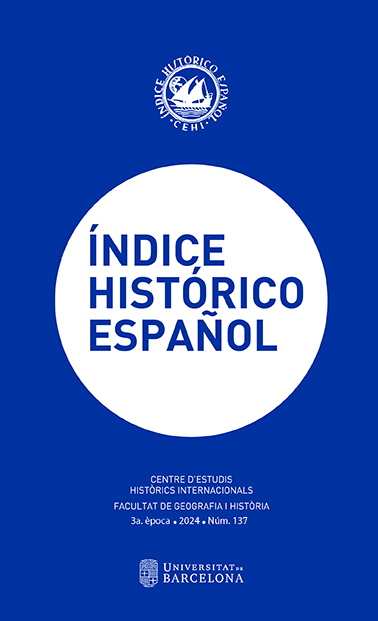La producció ceràmica del Regne de Sevilla al voltant dels segles xv-xviii: un estat de la qüestió sobre els estudis arqueomètrics
Keywords:
ceramic archaeometry, Kingdom of Seville, late medieval period, modern age, ceramic production.Abstract
This article synthesises the main studies on the archaeometric characterisation of ceramic production in the Kingdom of Seville, with particular attention to the latest studies and lines of research. These studies, which began in the 1970s, were focused on Sevilla and the export of its ceramics to the American colonies. This centralisation has traditionally sidelined the rest of the territory, relegating it to a marginal role and obscuring its participation in the commercial circuits of the time. However, the latest lines of research to which the TECNOLONIAL project has significantly contributed have emphasised the historical bias suffered by these other areas of the Kingdom, intending to correct it and obtain as much information as possible about these other production centres.
Downloads
Downloads
Published
Issue
Section
License

This work is licensed under a Creative Commons Attribution-NoDerivatives 4.0 International License.
The copyright policy begins to apply in number 135 corresponding to 2022.
The author who publishes in this journal agrees with the following terms:
1. The author retains the rights of authorship and grants the journal the right of first publication of the work.
2. The texts are distributed under the Creative Commons International License for Recognition and Derivative Works 4.0 (CC-BY-ND 4.0) https://creativecommons.org/licenses/by-nd/4.0
3. The authors are allowed to have additional independent contractual agreements for the non-exclusive distribution of the version of the work published in the magazine (for example the publication of an institutional or thematic repertoire, the new page personal website or a book), always that the first publication in the journal is stated.
4. It is possible to archive published versions.



